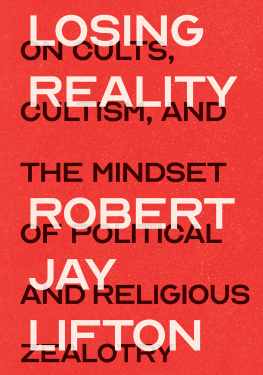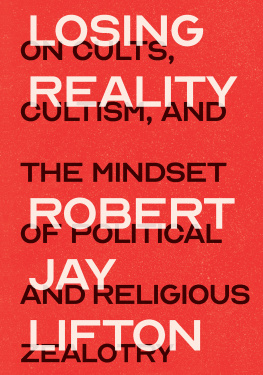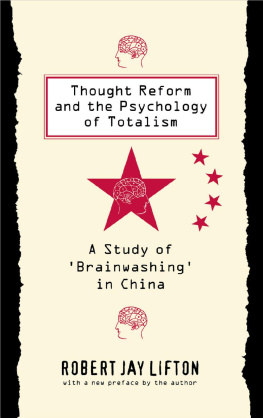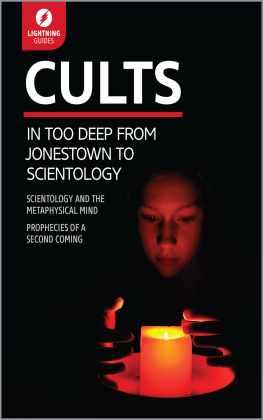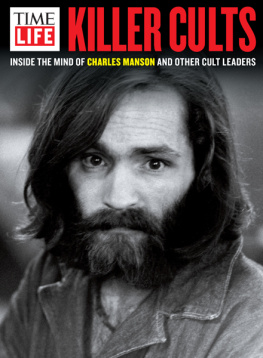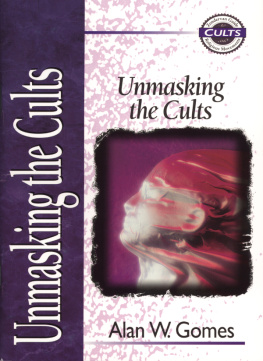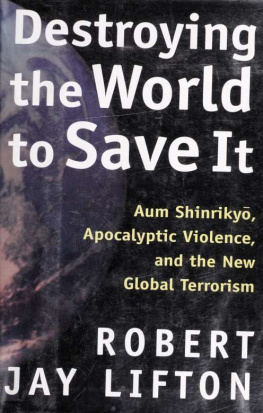Robert Jay Lifton - Losing Reality: On Cults, Cultism, and the Mindset of Political and Religious Zealotry
Here you can read online Robert Jay Lifton - Losing Reality: On Cults, Cultism, and the Mindset of Political and Religious Zealotry full text of the book (entire story) in english for free. Download pdf and epub, get meaning, cover and reviews about this ebook. year: 2019, publisher: The New Press, genre: Politics. Description of the work, (preface) as well as reviews are available. Best literature library LitArk.com created for fans of good reading and offers a wide selection of genres:
Romance novel
Science fiction
Adventure
Detective
Science
History
Home and family
Prose
Art
Politics
Computer
Non-fiction
Religion
Business
Children
Humor
Choose a favorite category and find really read worthwhile books. Enjoy immersion in the world of imagination, feel the emotions of the characters or learn something new for yourself, make an fascinating discovery.
- Book:Losing Reality: On Cults, Cultism, and the Mindset of Political and Religious Zealotry
- Author:
- Publisher:The New Press
- Genre:
- Year:2019
- Rating:5 / 5
- Favourites:Add to favourites
- Your mark:
Losing Reality: On Cults, Cultism, and the Mindset of Political and Religious Zealotry: summary, description and annotation
We offer to read an annotation, description, summary or preface (depends on what the author of the book "Losing Reality: On Cults, Cultism, and the Mindset of Political and Religious Zealotry" wrote himself). If you haven't found the necessary information about the book — write in the comments, we will try to find it.
A definitive account of the psychology of zealotry, from a National Book Award winner and a leading authority on the nature of cults, political absolutism, and mind control
In this unique and timely volume Robert Jay Lifton, the National Book Awardwinning psychiatrist, historian, and public intellectual proposes a radical idea: that the psychological relationship between extremist political movements and fanatical religious cults may be much closer than anyone thought. Exploring the most extreme manifestations of human zealotry, Lifton highlights an array of leadersfrom Mao to Hitler to the Japanese apocalyptic cult leader Shk Asahara to Donald Trumpwho have sought the control of human minds and the ownership of reality.
Lifton has spent decades exploring psychological extremism. His pioneering concept of the Eight Deadly Sins of ideological totalismoriginally devised to identify brainwashing (or thought reform) in political movementshas been widely quoted in writings about cults, and embraced by members and former members of religious cults seeking to understand their experiences.
In Losing Reality Lifton makes clear that the apocalyptic impulsethat of destroying the world in order to remake it in purified formis not limited to religious groups but is prominent in extremist political movements such as Nazism and Chinese Communism, and also in groups surrounding Donald Trump. Lifton applies his concept of malignant normality to Trumps efforts to render his destructive falsehoods a routine part of American life. But Lifton sees the human species as capable of regaining reality by means of our protean psychological capacities and our ethical and political commitments as witnessing professionals.
Lifton weaves together some of his finest work with extensive new commentary to provide vital understanding of our struggle with mental predators. Losing Reality is a book not only of stunning scholarship, but also of huge relevance for these troubled times.
Robert Jay Lifton: author's other books
Who wrote Losing Reality: On Cults, Cultism, and the Mindset of Political and Religious Zealotry? Find out the surname, the name of the author of the book and a list of all author's works by series.

